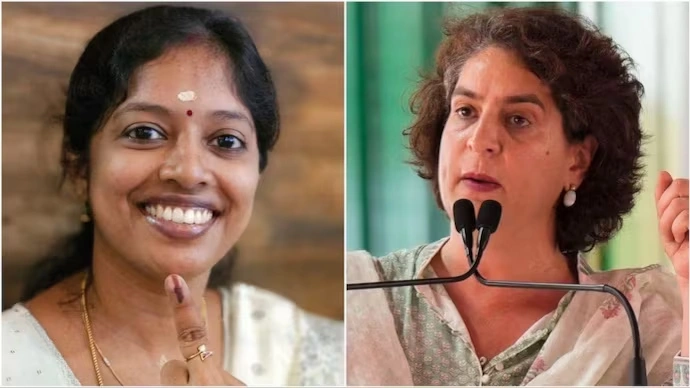Former US President Donald Trump stated on Friday that he would vote against an amendment aimed at ending Florida’s six-week abortion ban. This came a day after he had appeared to suggest he would support the measure.
In a prior interview, Trump indicated that he would vote in favor of having more than six weeks. However, his campaign quickly issued a statement clarifying that Trump had only reaffirmed his belief that six weeks was too short and had not specified how he would vote.
Subsequently, the Republican presidential candidate appeared on TV, where he clarified his position. He mentioned that six weeks was insufficient and emphasized that the Democrats were radical, while repeating false claims about late-term abortions. Therefore, he would vote against the amendment for that reason.
The initial confusion led to criticism from anti-abortion groups, many of which support and contribute to Trump’s campaign for the November 5 presidential election.
In April, Trump briefly considered backing a potential nationwide 15-week ban but ultimately decided that states should determine their own regulations.
Florid to legalize abortion until fetal viability
Florida’s upcoming ballot measure seeks to legalize abortion until fetal viability. Fetal viability refers to the point at which healthcare providers determine whether a pregnancy will continue to develop normally. This assessment is generally made around the 24-week (6 months) mark.
Currently, the state enforces a ban on abortion after six weeks.
In response to Trump’s position, Democratic presidential nominee and Vice President Kamala Harris quickly remarked that Trump had clarified his stance on abortion by stating he would support an abortion ban so extreme that it applies before many women are even aware they are pregnant.
Abortion rights have become a central issue in the US leading up to elections, especially after the Supreme Court overturned the 1973 Roe v. Wade decision, which had ensured a constitutional right to abortion.
The rush to clarify his stance followed intense blowback from anti-abortion advocates online, leading to concerns among Republicans that Trump’s continued wavering on abortion might alienate deeply religious voters in a tightening race.
Navigating the post-Roe v. Wade era
Trump, whose views on reproductive health have fluctuated widely, has long been worried about the political consequences of the 2022 Supreme Court decision to end the constitutional right to an abortion. Although he has sought credit for appointing the three conservative justices who helped overturn Roe v. Wade, Trump had stated earlier this year that future decisions regarding access should be left to the states.
That stance, intended to close the discussion, has done the opposite, and Trump has struggled to appease activists within his party while facing an electorate that remains largely concerned about abortion access in many GOP-led states. A recent Quinnipiac University survey found that 55% of voters believe Vice President Kamala Harris is better suited to address the issue, compared to 38% for Trump. Additionally, nearly 70% of voters focused on abortion prefer Harris over Trump, according to a CBS News poll conducted by YouGov.
Trump’s discomfort was evident when he infuriated religious conservatives recently with an awkward attempt to avoid questions about a Florida referendum that will determine the future of abortion access in his home state. The campaign quickly issued a statement clarifying that Trump had not taken a position on the issue.
Later that day, Trump unexpectedly shifted from remarks on manufacturing to offer women a new incentive to vote for him: a promise of universal coverage for in vitro fertilization if elected. However, senators in his own party, including his running mate JD Vance, had defeated a bill with a similar provision earlier this summer.
Harris’ campaign intensifies focus on reproductive health care
Democrats, energized by Harris’ rise to the top of the ticket, have intensified their focus on abortion in their appeal to women in key states. The Democratic National Convention earlier this month showed emotional stories from women who could not access potentially life-saving care when their pregnancies became problematic. On Friday, Harris’ campaign announced a 50-stop bus tour — starting in Trump’s hometown of Palm Beach, Florida — centered on reproductive health care.
Harris’ campaign also quickly responded to Trump’s proposal for IVF coverage by pointing out that the GOP’s recently passed platform — heavily influenced by Trump — includes language supportive of states passing personhood legislation that would extend 14th Amendment protections to life beginning at conception. Such laws could potentially complicate IVF procedures in those states.
Harris campaign spokeswoman Sarafina Chitika stated that voters are not naive.
Read More: Germany: Why There Has Been A Steep Rise In Knife Attacks
Trump risks losing support of pro-life votes
As the race tightens in critical battlegrounds, Trump has effectively challenged single-issue anti-abortion voters to stay out of the election. On social media last week, he claimed that his administration would be “great for women and their reproductive rights.” Vance later stated in an interview that Trump would veto a federal ban on abortion even if one passed Congress — a reversal from Trump’s previous promise to sign national restrictions into law.
Religious conservatives, some of whom had viewed Trump’s “states’ rights” stance as political pragmatism, have recently warned that Trump risks losing their support. Lila Rose, founder of the anti-abortion group Live Action, responded online to Vance’s remarks by warning that if Trump does not adhere to pro-life principles, he will not receive pro-life votes.
Rose also criticized Trump’s attempt to align with Democrat views on abortion, arguing that it would harm him politically and was morally wrong.
Trump’s efforts are further complicated by the situation in his home state of Florida, where abortion is now illegal in most cases after six weeks. Voters, including Trump, will decide the future of abortion access this fall through a ballot measure that would legalize abortion in the state up to the point of viability, which many experts believe is around 23 or 24 weeks of pregnancy.
Trump had previously avoided commenting on the referendum but told reporters on Thursday that Florida’s six-week ban was “too short” and he would be voting for a measure that allows more than six weeks.
Trump disagreeing with six-week abortion ban
However, Trump later told Fox News that he would vote “no” on the amendment, stating that six weeks is insufficient and expressing disagreement with it, while criticizing the Democrats for their stance on abortion up to nine months and infanticide in some states.
During the GOP primary, Trump had criticized then-rival Florida Governor Ron DeSantis’s decision to sign a six-week ban as a “terrible thing and a terrible mistake.”
Anti-abortion advocates interpreted Trump’s latest remarks as an indication that he intended to support the referendum, though his campaign denied this and expressed frustrations. The cleanup for Trump’s campaign continued on Friday, with Vance informing CNN that Trump would “make an announcement” on Florida’s referendum soon.
Vance explained that Trump’s comments suggested he was dissatisfied with the six-week limit but would make his own judgment on how to vote on the amendment.
Trump’s remarks quickly impacted Florida, where DeSantis is leading the Republican effort against the referendum. Taryn Fenske, a spokeswoman for DeSantis, responded to Trump’s comments by denouncing the proposed amendment as “extreme and must be defeated.”
Also Read: Brazil blocks Musk’s X: Everything you need to know

















